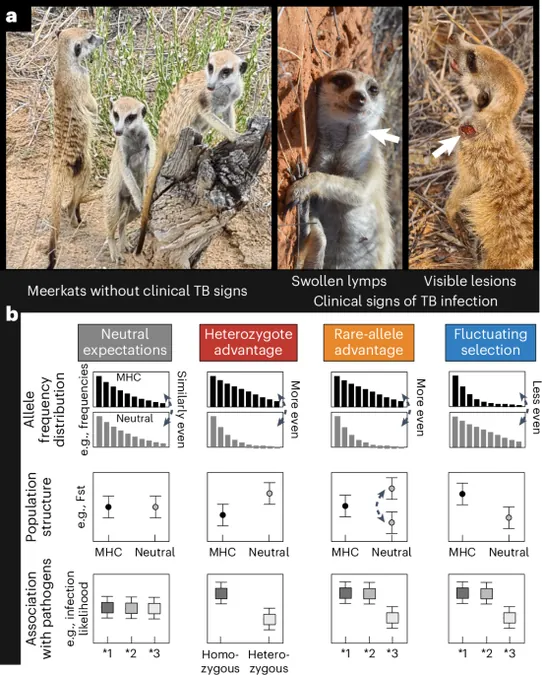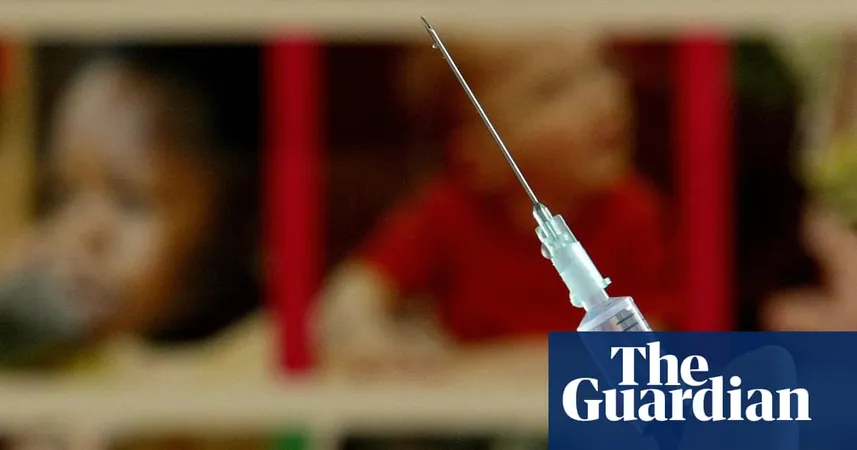
How Two Decades of Tuberculosis Shaped Meerkat Evolution: A Deep Dive into Genetics and Survival
2025-08-25
Author: Liam
A Window into Evolution: Meerkats, TB, and Immune Genetics
For over twenty years, researchers have observed how tuberculosis (TB) impacts meerkats—a small, social mammal native to Southern Africa. This comprehensive study at the Kuruman River Reserve has uncovered how Mycobacterium suricattae, the meerkat strain of TB, drives evolution in these animals through genetic selection.
What is Pathogen-Mediated Balancing Selection (PMBS)?
Pathogen-mediated balancing selection (PMBS) is a fascinating concept: it allows certain alleles—genetic variants—to thrive as pathogens evolve to dodge the immune responses those alleles trigger. Essentially, rare alleles become advantageous because they provide a unique defense against ever-changing pathogens, creating a dynamic evolutionary arms race.
The Study: Diving into Meerkat Immunogenetics
In this groundbreaking research, scientists monitored a population of over 1,500 wild meerkats, documenting their health and social behaviors. They focused on identifying MHC class II diversity—genes crucial for immune response—and observed that certain alleles had influenced disease susceptibility and survival rates across generations.
Discoveries of Distinctive MHC Alleles
The study revealed the presence of 37 MHC-DRB exon 2 alleles among the meerkats, showcasing significant diversity. Those carrying the Susu-DRB*13 allele initially faced higher risks of TB but later showed resilience as they became less susceptible over time. The research suggests that this allele might provide survival advantages as TB pressures fluctuate.
The Wild Challenge of TB: Social Behavior and Environment
Meerkats' social structure, where a dominant pair leads reproduction and influences group behavior, may increase the spread of TB. Their habitat, characterized by varying climates, also affected TB prevalence, pushing for a significant interplay between environmental factors and genetics.
Down to the Genetics: Analyzing Success and Susceptibility
By contrasting MHC alleles with neutral genetic markers, researchers identified how specific alleles correlate with TB-related survival and reproductive success. For instance, meerkats carrying the Susu-DRB*13 allele not only lived longer after showing TB symptoms but also experienced higher lifetime reproductive success. This dual benefit paints a vibrant picture of natural selection at work.
Implications of the Findings: A New Narrative on Evolution
This study provides crucial insights into the mechanisms of PMBS, suggesting that fluctuating selection and rare-allele advantage are significant players in meerkat immunogenetics. By tracking these dynamics over two decades, scientists are piecing together a narrative of contemporary evolution in the wild—the vivid interplay between genetics, behavior, and disease.
Future Directions: Protecting Wildlife and Understanding Disease Evolution
Understanding these evolutionary dynamics is essential for wildlife conservation and managing diseases that can leap from animals to humans. As researchers continue to study meerkat populations, their findings may offer key insights into how to protect these fascinating creatures and mitigate the impacts of diseases like TB.









 Brasil (PT)
Brasil (PT)
 Canada (EN)
Canada (EN)
 Chile (ES)
Chile (ES)
 Česko (CS)
Česko (CS)
 대한민국 (KO)
대한민국 (KO)
 España (ES)
España (ES)
 France (FR)
France (FR)
 Hong Kong (EN)
Hong Kong (EN)
 Italia (IT)
Italia (IT)
 日本 (JA)
日本 (JA)
 Magyarország (HU)
Magyarország (HU)
 Norge (NO)
Norge (NO)
 Polska (PL)
Polska (PL)
 Schweiz (DE)
Schweiz (DE)
 Singapore (EN)
Singapore (EN)
 Sverige (SV)
Sverige (SV)
 Suomi (FI)
Suomi (FI)
 Türkiye (TR)
Türkiye (TR)
 الإمارات العربية المتحدة (AR)
الإمارات العربية المتحدة (AR)